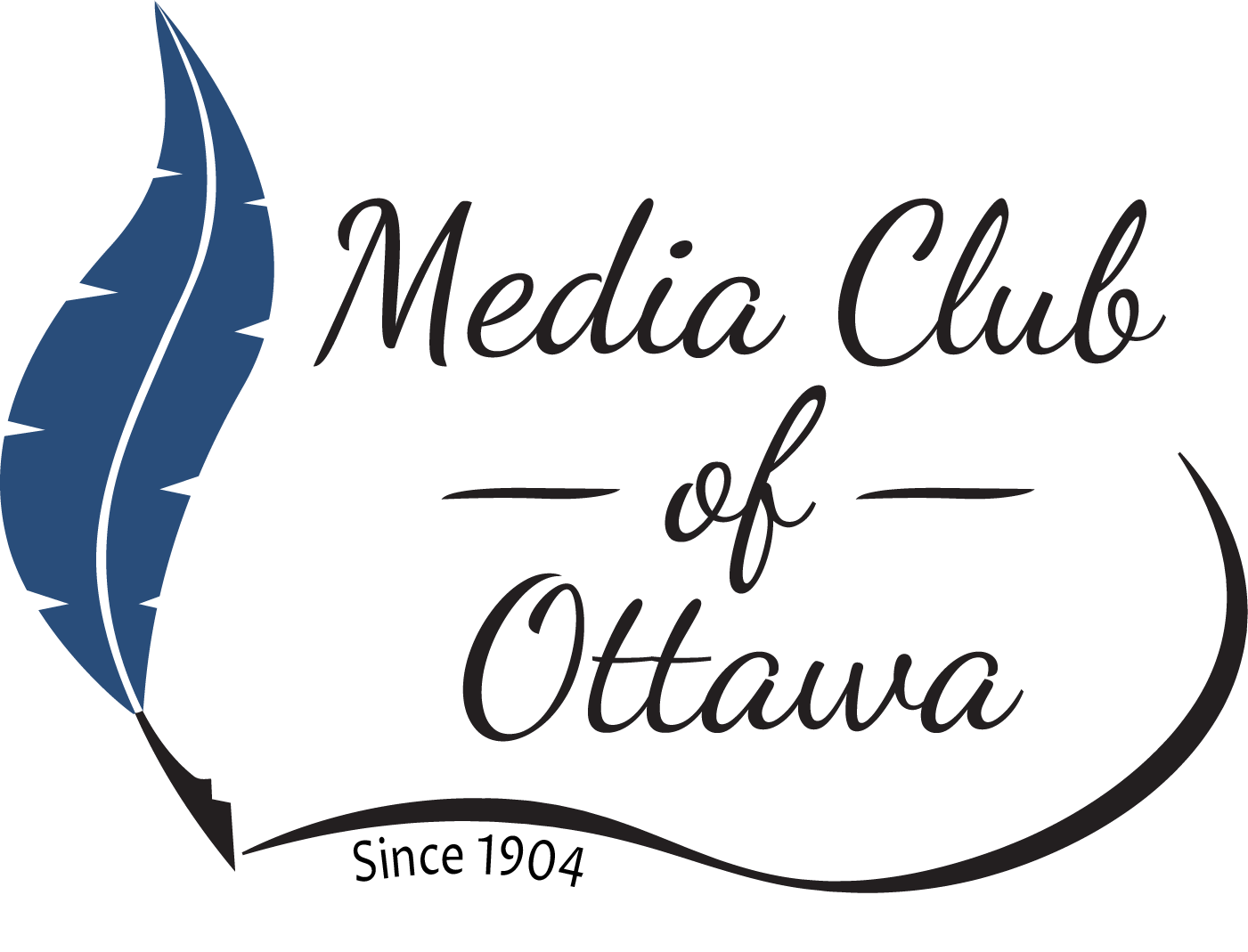About Jessica Goodfellow
Jessica Goodfellow joined the Media Club of Ottawa after completing her studies at the University of Ottawa. While working in Paris, France as Communications Officer for the International Federation of Agricultural Producers, she sent an article to the Media Club about her experiences there. “Across the Pond” was published on page 3 of The Galley in March 2008. At the time of the intervies, Jessica was living in Ottawa again, working as Director of Communications, for Seeds Canada
—–
I interviewed editor/poet/lecturer/journalist Mike Heenan while attending the Bridging the GAO seminar on learning to communicate with different generations that the Media Club hosted in November. It was my first interview ever, so he began to guide me through it, asking me first “Can you write fast?”
He described himself as a senior citizen, but the only thing he felt had really changed upon turning 65 was his bank account which was a little larger with the money he now gets from the government.
We sat down at a table before the seminar began and Mike began to reflect onhis career. June Coxon introduced him as someone who hadn’t followed the conventional journalist career development. He had certainly lived his life adapting to new environments.
I took out my notepad and Mike began to describe his university experience at Carleton, graduating with their first year of a BA/BJ degree in 1966 while working nights at the Citizen.
His first real breakthrough was a documentary he made for the CBC called ‘The Passing Visitor” examining the causes of the first suicide at Carleton University to be out in the public eye. Talking about it, he seemed almost at a loss for words, as if attempting to understand the causes of something nearly incomprehensible. “It was Paul something …” he said.
Once out of university he got a job with Bell Canada in public relations where a chance with them to attend Expo 67 and have a good salary of seven thousand dollars a year. “That would be about 50 thousand a year today,” Then he said, “I sort of got burned out. So went back to university and got my M.A.”
Afterwards he taught at the University of Ottawa and Algonquin College, while aiming to attain his Ph.D. Mike described with rapture the days when he got to interview “all of the great Canadian poets” for his PhD, which he ended up publishing.
He reminisced about these days in Ottawa during the pre hippie era, and going to coffee houses , and listening to his friends playing the guitar and poetry readings. I could almost smell the smoke and booze and hear the poetry. Discussions about the psychological necessity of poetry with poets like AJM Smith and Milt Acorn. He described how Al Purdy could drink them all under the table, and would get in a bar fight just for fun. “That’s what he called a Tuesday night.” He described how a poet like bp nicol, who they all called beeps, could gather many friends, a charismatic chap, and “really influence the ethos of their generation.”
“Those were the fun years,” he told me.
During the workshop when we discussed the use of different slang words by different generations Mike told everyone how his mother used to call good looking men “dreamboats”.
“Poetry in Ottawa has always been vibrant,” he told me, then began to tell me all the cool places to go in Ottawa to catch some poetry – the Bank pub, the Sasquatch Literary and Arts Performance series, the Tree series …
Mike taught Canadian Literature for 15 years and then he decided to create his own company, called Creative Consulting Incorporated, where he wrote reports for the government and other firms. He described how he had developed a network of “experts at his disposal” – geologists, financial analysts and others that he could call up and “pick their brains” or do subcontracting. He said this job involved a lot of paperwork.
He tried to remember how long he ran the company. “Oh, yes, 10 years because I got a mug that said 10 years on it.” Soon after he dissolved the company.
During the time he ran Creative Consulting he had been working as a part time copy editor for the Carp Valley Press, a weekly rural newspaper, and when he dissolved the company her got a chance to work as the editor. He said it was a writer’s dream to edit a rural newspaper and told me of an image he had of himself relaxing with a cigar after a days work as the editor of a rural newspaper. Honestly I couldn’t really relate. Perhaps its a generational thing.
He said this job was a lot of work, and reminisced, perhaps a bit nostalgically about how everyone in the community thought they ran it, and said that the letters to the editor pages could turn out quite interesting sometimes.
Mike ran into some health problems during this time, and his wife told him he had to take it easy. Now he is working on a few anthologies and gathering poetry of his own as well as working as an independent editor .
While in the seminar, perhaps he didn’t realize I was still in interview mode. We were talking about how paradigm changes in society have affected Generation Y. Mike mentioned something I didn’t understand, “the medium is the message”, so I wrote it down. That concludes my impressions on the career of Mike Heenan.
____________________
